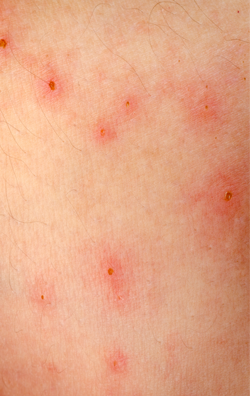
Otitis media is a medical condition characterized by inflammation of the middle ear. The middle ear is the part of the ear canal which is located beyond the ear drum, (the tympanic membrane) and contains the three tiny bones (ossicles) namely the malleus, incus and stapes helping in transmission of sound to the inner ear. Bacterial infection is the most common underlying cause of otitis media or middle ear infection, however viral and allergy are the other common causes. Children are at more risk to suffer from this condition.
Otitis media usually present in, either as acute otitis media or as otitis media with effusion. In most of the cases, the symptoms of otitis media resolve on its own with regular monitoring of the patients along with administration of pain relieving agents to relieve the main symptom, ear pain. Ear pain and discharge from the ear are the two most common presenting symptoms.
Persistent and repeated episodes of infection in the middle ear may lead to a number of serious complications namely loss of hearing, although in most of the cases it is temporary, sometimes severe damage to the ear drum or to the ear bones (ossicles) may lead to permanent loss of hearing, rupture of the ear drum, delay in speech in children, etc.
Symptoms
Symptoms of cute otitis media appear almost immediately after contracting infection and the symptoms also tend to progress very rapidly. The usual presenting symptoms in children include pain in the ear more commonly in lying down position, tugging or pulling the external ear (pinna) due to the underlying discomfort, interrupted sleep, increased irritability, excessive crying, more than the usual amount of crying, inability to maintain proper balance, high degree of fever usually above 100◦F, fluid may come out of the ear canal, inability to eat adequately due to loss of appetite etc.
However, in adults high grade fever, ear pain, discharge from the ear, muffling of sounds may occur following otitis media.Usually the symptoms of otitis media resolve with minimal medical intervention, however prolonged infection associated with ear discharge may complicate the situation leading to other serious outcomes.
These are
1) Loss of hearing: in most of the cases, hearing loss is temporary and is resolved when the inflammation is cleared. Repeated episodes of otitis media as well as discharge from the ear may increase the chance of prolonged hearing loss. Sometimes the eardrum and the three ossicles might be damaged resulting in permanent deafness.
2) Delay in speech: inability to hear words clearly for prolonged period of time may lead to delay in speech in children, thereby social skills also suffer.
3) Spread of infection the other adjacent tissues: longstanding otitis media may lead to the spread of infection to other adjacent structure like the mastoid bone of the skull. Sometimes, the infection may spread to the brain tissue along with other skull bones.
4) Rupture of ear drum: if otitis media is not treated in time, there is a chance that within 72 hours the tympanic membrane may get infected, leading to a hearing loss.





